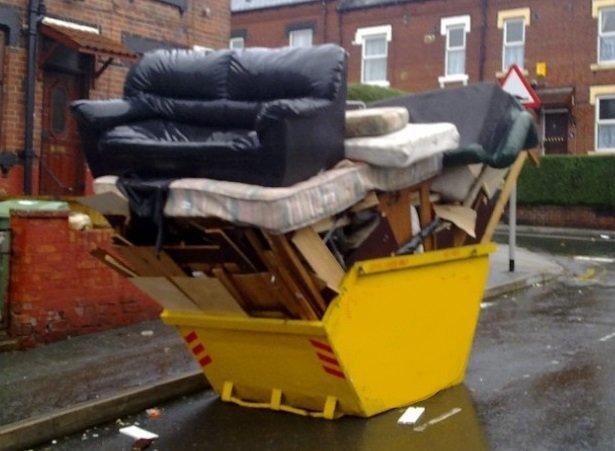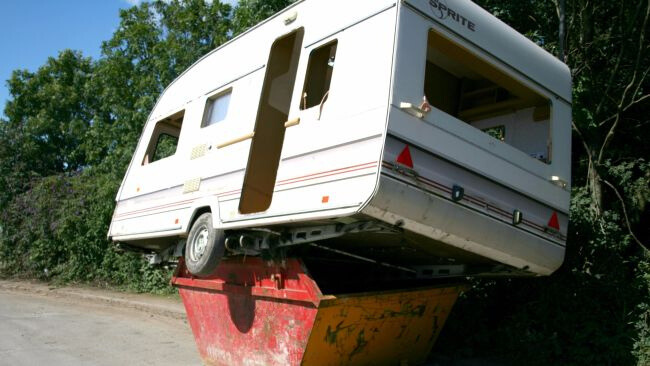Welcome to our blog post on the importance of keeping skip loads level during waste disposal. Maintaining a level skip load not only ensures safety but also maximizes the capacity of the skip and facilitates efficient waste management. In this article, we will explore the reasons why a level skip load is crucial, provide practical tips on achieving balance, and highlight the benefits of proper load distribution.
Understanding the Importance of a Level Skip Load
A skip is an essential tool for waste disposal, but it’s important to recognize the significance of maintaining a level load. Here are a few reasons why it’s crucial:
- Safety: An unevenly loaded skip can pose risks such as instability, tipping, and potential injury to workers. By keeping the load level, you create a safer environment for everyone involved.
- Legal Compliance: Overloaded skips not only violate weight limits but also the regulations set by local authorities. It’s essential to comply with these guidelines to avoid fines or penalties.
- Cost-effectiveness: Properly utilizing the skip’s capacity is not only a matter of compliance but also cost efficiency. By optimizing the space within the skip, you can avoid additional fees for exceeding weight limits or requiring multiple skip hires.
Tips for Achieving a Level Skip Load
Now that we understand the importance of a level skip load, let’s explore some practical tips for achieving balance:
- Selecting the Appropriate Skip Size: Choosing a skip that matches the amount of waste you need to dispose of is crucial. It prevents overfilling or underutilization, ensuring an optimal load distribution.
- Efficient Packing: Organize and compact the waste inside the skip to maximize the available space. Break down larger items and use suitable packing techniques to create a solid and level base.
- Layering Technique: Place heavier items at the bottom and lighter materials on top. This method helps maintain balance and prevents excessive pressure on one side of the skip.
- Break Large Items: Disassemble large objects to fit them into the skip more efficiently. Breaking them down not only saves space but also helps distribute the weight evenly.
- Spreading the Weight: Avoid concentrating weight on one side of the skip. Distribute heavier items throughout the skip to achieve a balanced load.
Benefits of Keeping Skip Loads Level
Keeping skip loads level offers numerous benefits, including:
- Safety and Accident Prevention: A level skip load reduces the risk of accidents, injuries, and damage to property or equipment. It provides a stable platform for workers to load and unload waste materials safely.
- Optimal Waste Disposal: By utilizing the skip’s full capacity, you can dispose of more waste in a single trip. This minimizes the need for additional skip hires, saving you time and money.
- Cost Savings: Efficient use of skip space prevents overloading penalties and reduces overall waste management expenses. By properly loading the skip, you can avoid unnecessary costs associated with exceeding weight limits.
- Environmental Responsibility: Properly distributed waste facilitates recycling efforts. It ensures that materials are disposed of appropriately, contributing to a more sustainable waste management process.

Compliance with Regulations and Permits
To ensure a smooth waste disposal process, it’s essential to comply with relevant regulations and obtain any necessary permits. Research and understand local regulations regarding skip weight limits and permits required for skip placement on public property. Adhering to these legal requirements helps you avoid fines and maintain a responsible waste management process.
In conclusion, maintaining a level skip load is essential for safe and efficient waste disposal. By following the tips and techniques outlined in this article, you can optimize skip capacity, minimize safety risks, and save on waste management costs. Prioritize balance, proper packing, and weight distribution to ensure a successful skip-hire experience while contributing to a more sustainable environment. Remember, a level skip load not only benefits you but also the community and the planet as a whole.
Tel:0333 335 5349 Email: [email protected]
